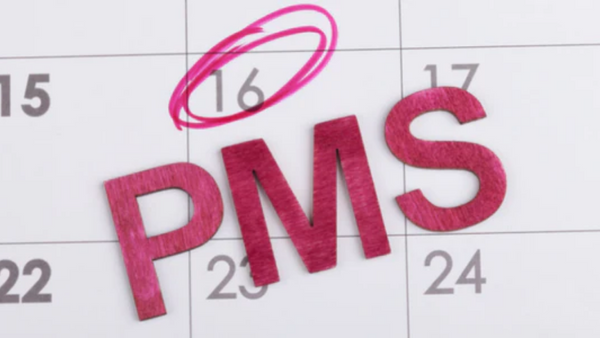You can recognize it from a distance because it marks those affected by the characteristic pimples and blackheads. We are talking about acne. Maybe you suffer from acne yourself, or maybe you just know someone who struggles with acne. In any case, in this article we have put together facts, information and possible solutions - including tips for a supportive diet - that could help relieve acne.
Acne - A short trip under the skin
Your skin is permeable and has many very small pores. However, these can become clogged with dirt, bacteria, dead skin cells and oil. When this happens, there is a high risk of pimples forming in these areas. If this happens often, you may be suffering from acne. Acne, especially acne in adults, is often referred to as hormonal acne.
70 to 95 percent of teenagers are or have been affected by this skin disease. Therefore, acne is considered one of the most common skin diseases, especially acne vulgaris or “common acne”, sometimes also known as acne simplex One of the reasons is hormonal changes that can occur during puberty, for example. From the age of nine, teenagers can discover the characteristic pimples and blackheads. However, the acne usually subsides again.
However, anyone who is over 25 and has to deal with acne is suffering from what is known as adult acne, acne tarda. This requires medical treatment.
But hormonal changes don't just occur during puberty. Polycystic ovaries (PCOS) and the menstrual cycle can also have a major impact on acne, as they affect the skin's oil production.
IT'S WORTH READING!
AT THE END OF THE ARTICLE WE WOULD LIKE TO GIVE YOU A LITTLE JOY WITH A VOUCHER!

Some medications can also cause acne (particularly steroids and lithium), as can hair care products, makeup and other products we put on our skin. These can contribute to clogging our pores. There are also genetic factors, pollution, smoking and stress that have also been cited as causes or contributing factors to acne.
However, current research also shows that our diet could play a major role. Certain foods can promote inflammation throughout the body, and it is possible that this can trigger acne outbreaks. [1]
How do you recognize acne?
Although acne can occur almost anywhere on the body, it most commonly occurs on the face, neck, back, shoulders and chest.
It mainly occurs in areas of the skin where there are many sebaceous glands. If you suffer from acne, you usually notice pimples that are black or white. White or black blackheads are called comedones (from the Latin comedere, “to eat with”)
Whiteheads and blackheads are the most common lesions in acne, but other types can also occur. Inflammatory lesions are more likely to cause scarring on the skin. These include:
- Nodules: Firm, often painful lumps beneath the surface of the skin.
- Pustules: Small red pimples that contain pus at the tip.
- Papules: Small, red bumps caused by inflamed or infected hair follicles.
- Cysts: Large lumps under the skin that contain pus and are usually painful.
Diet and acne
As mentioned above, your diet can affect your hormone levels, which can make acne worse. For example, milk and foods high in sugar can cause insulin levels to rise, altering other hormones that may affect your skin. Some studies have linked milk, whey protein, and acne. [2] , [3]
One study compared the results of 24-hour dietary surveys of more than 24,000 adults (average age 57 years) who had acne at the time, had acne in the past, or had never had acne at the time of the study. [4]
The researchers found a link between the likelihood of suffering from acne and the consumption of
- High-fat foods (including milk and meat)
- Sugary foods and drinks
- Fatty and sugary foods. Compared to people who had never had acne, respondents with current acne were 54 percent more likely to eat this type of diet.

How does diet affect your skin?
Certain foods cause blood sugar to rise faster than others. When blood sugar levels rise, the body releases a hormone called insulin. An excess of insulin in the blood can cause the oil glands to produce more oil, increasing the risk of acne. [5]
Foods that trigger high insulin levels include:
- Pasta
- white rice
- White bread
- Sugar
Because of their insulin-triggering effect, these foods are considered "high glycemic" carbohydrates. This means that they consist of simple sugars.
Chocolate is also suspected of making acne worse, but this does not seem to be the case for everyone. [6]
Other researchers have investigated the links between a so-called "Western diet" and acne. This type of diet is based heavily on:
- High glycemic carbohydrates
- Dairy products
- Saturated fats
- Trans fats
Research suggests that these foods stimulate the production of hormones that can cause excess oil to be produced and secreted by the oil glands. [7]
Foods that may help your skin
Conversely, eating foods with a low glycemic index and complex carbohydrates should reduce the risk of acne. Complex carbohydrates are found in whole grains, legumes and unprocessed fruit and vegetables, for example.

There are nutrients that are also good for your skin due to their anti-inflammatory properties, for example
The following nutrients or diets are said to help with acne:
Omega-3 fatty acids and antioxidants
Omega-3 fatty acids, along with omega-6 fatty acids, are polyunsaturated fatty acids and are essential for your body. They must be supplied through food and are found in certain plants and animal protein sources such as fish and eggs. [8]
Antioxidants are chemicals that neutralize harmful toxins in the body. Omega-3 fatty acids and antioxidants together are believed to reduce inflammation. [9]
Studies largely support the link between increased consumption of omega-3 fatty acids and antioxidants and the simultaneous reduction of acne. [10]
zinc
Several studies indicate that foods rich in zinc may be helpful in preventing and treating acne. [11]
These foods include, for example:
- Lenses
- seafood
- beef
- Pumpkin seeds
- Quinoa
- Cashew nuts
In a controlled study, researchers investigated the relationship between zinc levels in the blood and the severity of acne.
A link was found between low zinc levels and more severe cases of acne. The study suggested increasing the amount of zinc in the diet to 40 mg per day to treat people with severe cases of acne. [12]
Vitamins A and E
A study published in the Journal of Cutaneous and Ocular Toxicology concluded that low levels of vitamins A and E also appear to be linked to severe cases of acne. [13]
One approach would be that people with acne may be able to reduce the severity of their condition by eating more foods that contain these vitamins, but this should only be done in consultation with a doctor.
Low-glycemic diets
A low-glycemic or low-sugar diet is thought to prevent acne and improve the severity of symptoms. One study of those affected found that adhering to a low-glycemic diet over a long period of time led to a significant improvement in acne. [14]
Another study showed that a 12-week low-glycemic, high-protein diet improved acne in men and also led to weight loss. [15]
Vitamin D
Studies have found a link between low vitamin D levels and acne. It is believed that a deficiency in this nutrient may worsen acne symptoms due to the vitamin's powerful anti-inflammatory properties. [16]
A study of 80 people with acne and 80 healthy controls found that almost 50 percent of those affected were found to be vitamin D deficient, compared to only 23 percent of the control group. [17]
Other supplements that can help you
In addition to vitamin D, zinc or antioxidants, the following supplements can help reduce acne symptoms:
- B vitamins. Taking B vitamins can help some people with acne. However, high-dose B12 injections can actually trigger acne in some people. [19]
- Berberis vulgaris has anti-inflammatory and antibacterial properties. According to some studies, taking barberry extract can significantly reduce acne lesions. [20]
- Some research suggests that probiotics may reduce skin inflammation and other acne symptoms, but more studies are needed to determine the most effective strains. [21]
Conclusion: Your diet also determines your skin
Acne is a skin condition that affects many people of all ages. It often affects the mental well-being of those affected. Some studies suggest that certain foods can help get rid of acne and improve skin health. However, there is no cure-all.
In addition to conventional treatment methods, such as medication, diet can be used as an alternative, natural method to control this disease.
A nutrient-rich diet with omega-3 fatty acids, vitamins and minerals such as zinc, vitamin A and E, as well as avoiding dairy products and limiting added sugars are evidence-based measures that can relieve acne symptoms.
AS PROMISED, YOU WILL RECEIVE A 10% VOUCHER ON OUR VITAMIN D3 liquid , Vitamin B complex forte , Astaxanthin , Omega-3 and ZINC .
SIMPLY COPY THE CODE AKNE+V10 AND ENTER IT AT CHECKOUT.
Click here to SHOP
[1] https://www.health.harvard.edu/staying-healthy/foods-that-fight-inflammation
[2] https://pubmed.ncbi.nlm.nih.gov/30096883/
[3] https://pubmed.ncbi.nlm.nih.gov/22988649/
[4] https://pubmed.ncbi.nlm.nih.gov/32520303/
[5] https://pubmed.ncbi.nlm.nih.gov/23619434/
[6] https://www.ncbi.nlm.nih.gov/pmc/articles/PMC4025515/
[7] https://www.dovepress.com/clinical-cosmetic-and-investigational-dermatology-journal
[8] https://pubmed.ncbi.nlm.nih.gov/28900017/
[9] https://pubmed.ncbi.nlm.nih.gov/24597798/
[10] https://www.ncbi.nlm.nih.gov/pmc/articles/PMC3543297/
[11] https://pubmed.ncbi.nlm.nih.gov/20510767/
[12] https://pubmed.ncbi.nlm.nih.gov/29193602/
[13] https://pubmed.ncbi.nlm.nih.gov/23826827/v
[14] https://pubmed.ncbi.nlm.nih.gov/17616769/
[15] https://pubmed.ncbi.nlm.nih.gov/17448569/
[16] https://www.ncbi.nlm.nih.gov/pmc/articles/PMC5997051/
[17] https://www.ncbi.nlm.nih.gov/pmc/articles/PMC4999291/
[18] https://www.ncbi.nlm.nih.gov/pmc/articles/PMC4151231/
[19] https://pubmed.ncbi.nlm.nih.gov/23815241/
[20] https://pubmed.ncbi.nlm.nih.gov/23038982/
[21] https://pubmed.ncbi.nlm.nih.gov/24364369/

















